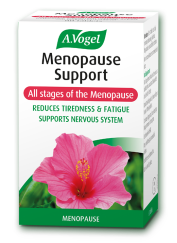An introduction to vaginal dryness and menopause
It seems that many women are reluctant to look for treatment for vaginal dryness during menopause, and would rather suffer in silence. However, vaginal dryness, or vaginal atrophy as it is also called, is a common symptom of the menopause affecting up to 50% of menopausal women.
Most women experience general discomfort, itching, burning and pain or light bleeding during sexual intercourse or urinating. It is a symptom which should not be ignored as it can lead to infections such as thrush or urinary tract infections. There are effective treatments for this symptom which will not only reduce discomfort, but improve vaginal health.
Why does menopause cause vaginal dryness?
As you approach the menopause, your body undergoes major hormonal changes and the female hormones, oestrogen and progesterone in particular, begin to decline. This can lead to a variety of symptoms including vaginal dryness.
Prior to the menopause, the hormone oestrogen keeps the wall of the vagina moist and supple by ensuring that there is an adequate mucous lining covering the walls of the vagina. This mucous lining is slightly acidic, to fight off any bacteria. When the oestrogen levels begin to decrease, this lubrication reduces and the vaginal walls become thin and sensitive. The acid levels decrease, making you more prone to bacterial infections.
What home remedies are there for vaginal dryness?
It is worth trying some simple home remedies before looking for medication, as often these will provide the desired relief from your vaginal dryness by the least invasive means:
- Use unperfumed soaps and washing powders – many soaps and washing powders contain chemicals which can strip away moisture from the genital tissues. Even regularly swimming in chlorinated water can dry out skin cells
- Stay hydrated – the most effective way of keeping mucous linings moist, including those around the vagina, is by drinking plenty of water. Drinking a lot of alcohol or caffeine can have the opposite effect, as these dehydrate the body in the long run
- Medications – some medications including allergy or cold treatments can dry out mucous membranes. If your doctor or pharmacist is able to suggest an alternative form of medication, then this could help your vaginal dryness.
Are there herbal remedies to help me?
Vaginal dryness during the menopause can be a complex problem to resolve as it is bound inextricably with loss of libido during this time of life. Psychological factors influence physical issues and vice versa.
To help the physical aspects, start by using a supplement containing soya isoflavones. This is a group of plant substances known as phytoestrogens because they mimic the action of oestrogens in the body.
 "Helped to eliminate all the unpleasant moments of my menopause."
"Helped to eliminate all the unpleasant moments of my menopause."![]()
Read more customer reviews
What about conventional medicine?
If you do not find that home or herbal remedies are relieving your symptoms then it may be worth speaking to your doctor, who may prescribe hormone treatments such as HRT, or prescribe a lubricant or cream.
Vaginal examinations are recommended to check for changes or abnormalities. If you are worried about your condition or suspect that you have developed a secondary bacterial infection then it is important to seek medical advice.









